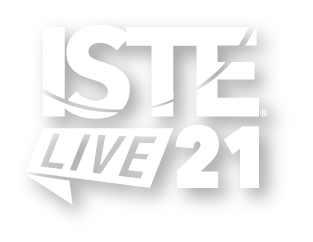

#Decarbonize: A Global Student Empowerment Project |
Participate and share : Interactive lecture
Sarah Flynn Nyla Hayhoe Sneha Rose Jigo Rosita Llanto Manuella Oliveira Pavan Trishu Vijayakumar
#Decarbonize is a learning and action project that uses virtual technology to connect students in 45 countries for eight months of enriched dialogue on climate change. Global project-based learning fosters intercultural skills through collaboration on pressing global issues. This session explores authentic PBL, offering strategies, pedagogies, tools and resources.
| Audience: | Principals/head teachers, Teachers, Technology coordinators/facilitators |
| Skill level: | Beginner |
| Attendee devices: | Devices useful |
| Attendee device specification: | Smartphone: Android, iOS, Windows Laptop: Chromebook, Mac, PC Tablet: Android, iOS, Windows |
| Participant accounts, software and other materials: | Participants are encouraged to bring an internet-enabled device to the session. All instructions will be provided on site. |
| Topic: | Global collaboration |
| Grade level: | PK-12 |
| Subject area: | Science, Social studies |
| ISTE Standards: | For Coaches: Digital Age Learning Environments
Citizen
Knowledge Constructor
|
| Additional detail: | Student presentation |
As the 21st Century presents an increasingly complex and interconnected world, human progress demands intensive global knowledge and skills, particularly of our young leaders and innovators. Teachers can foster a sense of global citizenship and intercultural skills through global project-based learning and collaborative projects that allow students to resolve global problems and communicate across cultural, political, and geographic boundaries. With e-technologies teachers can seamlessly integrate global themes and perspectives across all grade levels and academic disciplines.
In this workshop, participants will explore global educational tools offered by TakingITGlobal through an authentic global inquiry experience. By the end of the workshop, teachers would not only have explored the tools and resources available on the TIGed website but also have developed a global project for their classroom. The workshop will recreate several elements of authentic project-based learning for participants, putting teachers into a true project-based learning environment while simultaneously offering them strategies, pedagogies, tools, and resources for their own global projects. Participants will participate in activities that allow them to construct one project for their classrooms during the session and gain valuable professional feedback from other educators.
1. Entry event (video and/or student presentation) 20 mins
2. Introduction of the driving question, define "need to knows" 10 mins
3. Beginning with the end in mind: defining the global graduate 10 mins
4. Pedagogical introduction to the main tenets of global education, deciding on the global competencies participants wish to teach 10 mins
5. Basics of project-based learning 10 mins
6. Introduction to TakingITGlboal educational tools & Decarbonize project 10 mins
7. Activity in broader forums: Find 3-5 tools or resources on TakingITGlobal which you could use in your classroom, then post on the discussion board in the virtual classroom. 15 mins; will require an additional 15 mins for TIGed and virtual classroom registration before activity. 30 mins total.
8. Activity in a virtual classroom: Participants explore activities and posts in the Decarbonize virtual classroom 20 mins
9. Exploration of what makes a good driving project-based question 10 mins
10. Define skills and engagement for participants - create an activity: 20 mins
· Project idea and title
· Driving question and potential virtual PBL activity to explore
· Global competencies to be taught and assessed through the project
· Academic standards/content benchmarks to be taught and assessed through the project
· TIG and other online tools or global partners to be employed during the project
11. Gallery walk of project participants' proposals to gather feedback (virtual or physical) 15 mins
12. Closing 5 mins
Abdi, A (2014) Critical global citizenship in K–12 classrooms. In: Montemurro, D, Gambhir, M, Evans, M, et al. (eds) Inquiry into Practice: Learning and Teaching Global Matters in Local Classrooms. Available at:https://www.oise.utoronto.ca/oise/UserFiles/File/TEACHING_GLOBAL_MATTERS_FINAL_ONLINE.pdf
Abdi, A, Shultz, L, Pillay, T (2015) Decolonizing global citizenship: an introduction. In: Abdi, A, Shultz, L, Pillay, T (eds) Decolonizing Global Citizenship Education. Rotterdam: Sense Publishers, 1–10.
Andreotti, V (2006) Soft versus critical global citizenship education. Policy & Practice: A Development Education Review 3: 40–51.
Andreotti, V (2011) (Towards) decoloniality and diversality in global citizenship education. Globalisation, Societies and Education 9(3–4): 381–397.
Biesta, G, Lawy, R, Kelly, N (2009) Understanding young people’s citizenship learning in everyday contexts, relationships and dispositions. Education, Citizenship and Social Justice 4(5): 5–24.
Davies, L (2006) Global citizenship: abstraction or framework for action. Educational Review 58(1): 5–25.
Evans, M, Ingram, L, MacDonald, A. (2009) Mapping the global dimension of citizenship education in Canada: the complex interplay between theory, practice, and context. Citizenship Teaching & Learning 5(2): 16–34.
Farid-Arbab, S. (2012) Moral empowerment: elements of a conceptual framework for education, Doctoral dissertation, Institute of Education, University of London.
GEFI (2012) Global Education First Initiative: an initiative of the United Nations Secretary-General. Available at: http://www.unesco.org/new/en/gefi/about/
Joshee, R, Sinfield, I (2009) The Canadian multicultural policy web: lessons to learn, pitfalls to avoid. Multicultural Education Review 2(1): 55–75.
Marshall, H (2011) Instrumentalism, ideals and imaginaries: theorising the contested space of global citizenship education in schools. Globalisation, Societies and Education 9(3–4): 411–426.
Masemula, MB (2015) Whose knowledge is transmitted through public education in Africa? In: Abdi, A, Shultz, L, Pillay, T (eds) Decolonizing Global Citizenship Education. Rotterdam: Sense Publishers, 173–178.
Merriam, S (1998) Qualitative Research and Case Study Applications in Education. San Francisco, CA: Jossey-Bass Publishers.
Mundy, K (2016) ‘Leaning in’ on Education for All. Comparative Education Review 60(1): 1–26.
Nguyen, TTA (2015) Global citizenship education: a skillful version of social transformation. In: Abdi, A, Shultz, L, Pillay, T (eds) Decolonizing Global Citizenship Education. Rotterdam: Sense Publishers, 39–56.
Noddings, N (2003) Happiness and Education. Cambridge: Cambridge University Press.
Osterweil, M (2005) Place-based globalism: theorizing the global justice movement. Development 48(2): 23–28.
O’Sullivan, E (2001) Transformative Learning: Educational Vision for the 21st Century. Toronto, ON, Canada: University of Toronto Press.
Pashby, K, de Oliveira Andreotti, V (2015) Critical global citizenship in theory and practice: rationales and approaches for an emerging agenda. In: Harshman, J, Augustine, T, Merryfield, M (eds) Research in Global Citizenship Education. Charlotte, NC: Information Age Publishing, Inc., 9–33.
Rizvi, F, Lingard, B (2010) Globalizing Education Policy. London: Routledge.
Ryan, GW, Bernard, HR (2003) Techniques to identify themes. Field Methods 15(1): 85–109.
Shultz, L (2007) Educating for global citizenship: conflicting agendas and understandings. Alberta Journal of Educational Research 53(3): 248–258.
Solorzano, DG, Yosso, TJ (2001) From racial stereotyping and deficit discourse toward a critical race theory in teacher education. Multicultural Education 9(1): 2–8.
Swanson, DM (2015) Ubuntu, indigeneity, and an ethic for decolonizing global citizenship. In: Abdi, A, Shultz, L, Pillay, T (eds) Decolonizing Global Citizenship Education. Rotterdam: Sense Publishers, 27–38.
Torres, CA (2015) Global citizenship and global universities: the age of global interdependence and cosmopolitanism. European Journal of Education 50(3): 262–279.
UNESCO (2014) UNESCO education strategy 2014–2021. Available at: http://unesdoc.unesco.org/images/0023/002312/231288e.pdf
UNESCO (2015) Global citizenship education: topics and learning objectives. Available at: http://unesdoc.unesco.org/images/0023/002329/232993e.pdf


Nyla is an incoming freshman/first year in High School, who has been with #Decarbonize:#Decolonize for over 3 years. As a youth environmental advocate, she has spoken and worked alongside professionals within the environmental sector (Marine Biologists, NASA Glaciologist, Entomologists, Authors, etc) to further her research and push the larger community to gain knowledge and act. This is all through her personal initiative with both #Decarbonize and as host of her webinar series Dolphins (Always) Know Best.



Been on a Virtual Field Trip? See Alaskan Sea Life!
Differentiate Student Actions and Expression With Google
The Global Connect: 12 Tips for Global Collaboration